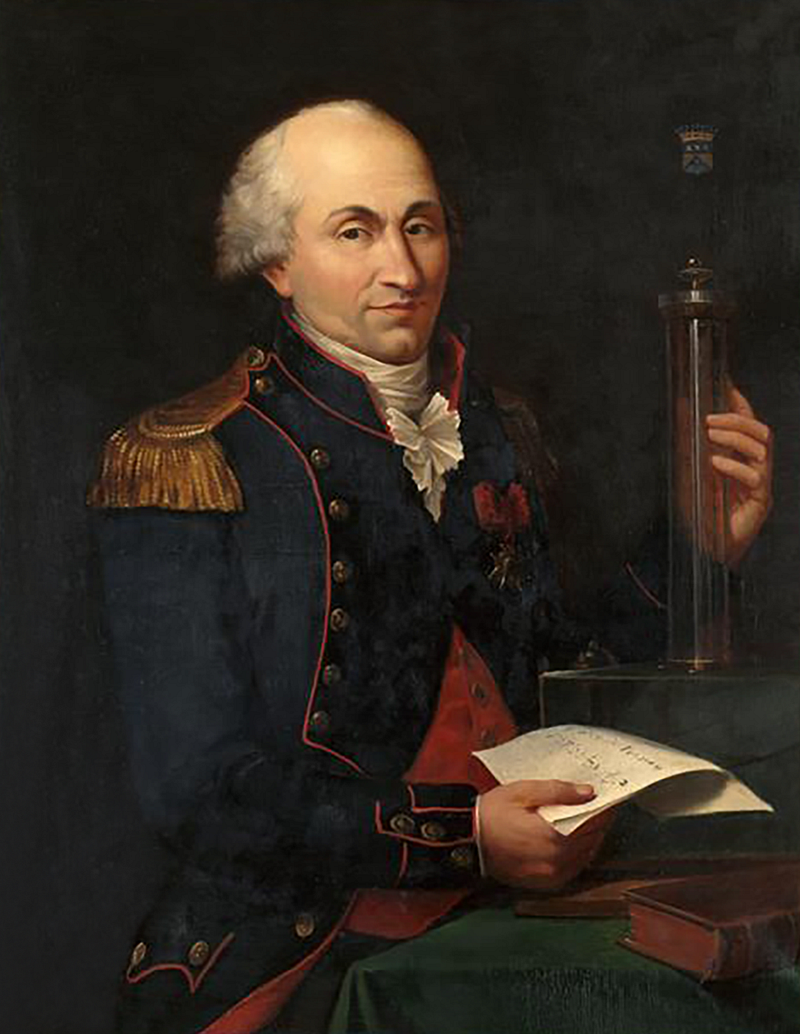Coulomb: A Legacy of Science and Humanity in Engineering
Written on
Contributions to the Field of Electricity
Charles-Augustin de Coulomb, a French physicist and engineer (1736–1806), is celebrated for his pivotal role in the advancement of electricity, which served as a cornerstone for future developments in electromagnetism and electrical engineering. His diligent experimental work and mathematical modeling notably enhanced the comprehension of electrical phenomena.
Coulomb's key achievements include:
- Coulomb’s Law: This law describes the forces of attraction and repulsion between two electrically charged entities.
- Coulomb’s Torsion Balance: He invented a sophisticated experimental device to accurately measure the electrostatic forces between charged objects.
- Electrical Conductivity: Coulomb introduced the concept of dielectric materials and explored how electrical charges behave in various substances.
- Electrostatic Laws: He formulated essential principles of electrostatics and established laws governing charge distribution on conductive surfaces.
- Unit of Charge: The term "Coulomb" (C), a unit of electric charge, is named in his honor, recognizing his significant contributions to the field.
Contributions to the Field of Soil Mechanics
A noteworthy aspect of Coulomb’s career reflects vital human values. Before his fame in electricity, Coulomb worked in the French Antilles, particularly in Martinique, from 1765 to 1772 as the Royal Engineer of Fort Bourbon. During this period, he oversaw various public works, such as roads, bridges, and fortifications, showcasing his commitment to practical engineering and societal welfare.
His time in Martinique significantly influenced his contributions to soil mechanics. He conducted numerous experiments to assess soil strength and stability, especially relevant for constructing fortifications on the island. This work laid the groundwork for modern soil mechanics by developing innovative methods for measuring soil strength and analyzing forces on retaining walls.
Coulomb’s experiences on the island also shaped his broader scientific approach. Witnessing the complexity of natural phenomena there led him to adopt a more systematic and quantitative methodology in his scientific observations and experiments. This emphasis on precision and controlled experimentation was crucial in both his studies of soil mechanics and electricity.
Perseverance
Consider a newly graduated engineer dispatched to the French Antilles in 1765. Faced with recurring failures in constructed slopes for military or land management purposes, he applied scientific methodologies to address phenomena in a field with scant structured knowledge, all while navigating a hostile environment with limited resources.
These studies, conducted under such arduous conditions, exemplify remarkable perseverance. They form foundational elements of soil mechanics, a discipline that would not gain formal recognition until 1925, credited to Karl Terzaghi, known as the "Father of Soil Mechanics" for his extensive contributions.
The Scientific Spirit and Methodical Commitment
Coulomb's studies on electricity and soil mechanics highlight a stark contrast in precision. The complexity of Coulomb’s experiments in electricity sharply contrasts with the variability in soil mechanics, which often requires higher safety coefficients for anticipated outcomes.
In both disciplines, Coulomb adhered to the scientific method, a commendable feat given his distance from the comforts of Paris and his temporary assignment in the French Antilles. He pursued his duties with military precision while remaining committed to his scientific curiosity.
Later, Coulomb shifted his focus to electricity and magnetism, solidifying his position as one of the foremost scientists of his era.
Thinking Outside of the Box
Coulomb's life was marked by the tumult of the French Revolution, during which he faced imprisonment due to his aristocratic ties. Nevertheless, his dedication to scientific inquiry remained steadfast, utilizing his confinement to further his research.
His keen intellect and meticulous experimental methods led to significant discoveries in mechanics and electricity. Coulomb was also known for his ability to challenge established norms and think creatively when solving scientific problems.
Philanthropy
Revolutions often lead to sudden societal changes, driven by long-standing tensions among oppressed groups. Such upheavals can result in unpredictable outcomes, not always beneficial.
However, the gradual effect of sustained social advancements requires individuals from privileged backgrounds to advocate for a fairer society. Charles-Augustin de Coulomb was one such individual.
Beyond his scientific achievements, Coulomb was committed to societal betterment. He fervently believed in the value of education and actively promoted the study of science and engineering. His public service efforts were focused on enhancing France's infrastructure, especially in transportation and public works.
As a strong proponent of universal education and meritocracy, Coulomb's views were reflected in his active participation with the Société Royale de Médecine, d’Agriculture et de Belles-Lettres de Montpellier, established in 1785 to promote scientific education and research.
In his writings, such as “Essay on the application of the rules of maximums and minimums to some problems of statics related to architecture,” he argued for broader access to education and the importance of rewarding individuals based on merit rather than social standing.
Coulomb's beliefs significantly influenced the evolution of science and society in the 18th and 19th centuries. His legacy is further honored on the Eiffel Tower, where his name is inscribed among 72 distinguished individuals from various fields, celebrating his contributions to science and humanity.

In the video "The High Cost of Good Intentions with John F. Cogan: Perspectives on Policy," explore the complexities of policy-making and the unforeseen consequences of well-meaning actions.